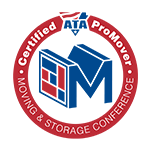If you are familiar with the show Storage Wars, you are most likely familiar with mini-storage rentals. If you need to store your belongings while moving or for a more extended period, renting a storage unit is an excellent way to go. Whether you’re in Detroit or another Michigan city, mini-storage facilities can offer a safe, secure and straightforward way to manage your storage needs. Many mini-storage facilities provide a range of spaces for long-term or short-term storage.
Finding a Storage Unit
Each storage business will have its own set of rules for reserving a storage unit. Ensure you look into the storage company and its facilities for each place you are thinking about utilizing. Reserve your space either online or over the phone as soon as you have your favored storage company narrowed down. Lots of places permit you to book a system as much as a month beforehand. Once you sign your rental agreement, you will be given a move-in date that you can start moving your personal belongings into storage. Depending on the length of your contract, you may be charged a regular monthly or weekly fee by the company.
Full Service or Mini Storage?
Full Service— A full-service storage business provides “valet-style” services to consumers. They will transport your items to the storage facility themselves. Full-service storage can save you the hassle of dropping off your belongings at the storage unit. Some full-service storage companies will even record what you store in your unit for added peace of mind.
Mini Storage: Mini storage (also called self-storage) is the most popular option when you need additional storage. These centers provide an inexpensive and safe way to store your family’s items, including more oversized items like boats. You are responsible for transporting your items to mini-storage, as well as picking up your items when you are ready. Mini-storage facilities don’t keep a record of what you put in their units, so if you decide to use a mini-storage unit, keep a record of what you are storing. Mini storage is more budget-friendly than full-service storage, which makes it an affordable choice for many people.
What kind of storage should I use?
Mini-storage systems are the most popular option for those requiring storage. These systems are more budget-friendly and much easier to use. Customers who use mini storage can get their belongings whenever they like, rather than needing to request a pick-up from a full-service storage facility. If you want to come and go as you please, a mini-storage unit is a fantastic option.
However, full-service storage may be preferred by those who reside in urban areas or don’t have access to a vehicle and rely on public transportation.
What size storage unit should I rent?
Most mini-storage facilities offer several different-sized units to rent. Many offer the five most popular sizes to rent: 5’x5′, 5’x10′, 10’x10′, 10’x15′ and 10’x20′. Some storage facilities in Michigan likewise provide larger sizes too. The cost and square footage needed will depend on how much storage you need. Full-service storage unit sizes can vary significantly, so talk to the facility you may want to use.
When do I need to be out of my storage unit?
You can usually lease a storage unit for as long as you like. You can find the storage unit that will fit your needs at almost any storage company, no matter what sort of storage you require. You can even rent storage units indefinitely, should you need to for personal or work-related reasons. In that case, the storage location may have minimum terms with which to comply. Many places use weekly or monthly contracts. When you are finished with your storage needs, alert the company to end your unit. You might end up paying the entire month’s rent, even if you end your rental in the middle of the month.
Storage unit cost calculations
The cost of Michigan storage units is calculated by time and size. Mini-storage facilities generally offer month-to-month contracts, which could be the ideal alternative for many people. Full-service storage facilities offer various contract terms. Some storage facilities require a minimum of three months, while others might provide a month-to-month agreement. There are also weekly storage locations, which could be an excellent option for those who need a storage unit for a short period. Please note, though, this alternative might not be available at all storage locations.
What should I look for in a storage facility?
Consider your storage needs when evaluating different facilities. Here’s what we recommend looking for:
– Climate control
– Ease of access– Will you have the ability to access your storage at any time of the day, or only during set hours? What about Sundays? Ensure the days and hours your MI storage facility is open will match what you need in terms of availability.
– The number of locks you are offered or will need to bring.
– Is the premises monitored by video cameras, staff members or both?
– Contracts and rates offered
– Readily available sizes
– Facility security and security in general
– Is it well lit?
– The location’s online reviews
What else do I need to know about utilizing a storage unit?
Undoubtedly, you should not just throw your things in a storage container and call it a day. There needs to be some preparation involved with putting your items in a storage unit. The following items can help round out what you need to know to make the most of a storage unit:
– Know the guidelines and restrictions— Your storage business probably has its own set of rules and regulations for how its units are used. Before storing products, understand what is and isn’t allowed to be stored in your unit. Harmful items such as chemicals, fireworks and other explosives are not permitted inside storage units, along with food and anything flammable.
– Keep track of all your possessions— If you plan to keep items in storage for an extended period, keep a list of what you are storing. You won’t remember everything you put in storage, no matter how much you think you will. We suggest writing everything down and taking pictures; after that, keep this information in a handy place that you can access later on when you need to retrieve your items.
– Clean what you will be keeping— Before storing items, you will want to make sure they are clean. Any clothing or other material products should be washed, dried and/or vacuumed. Whatever you store in your unit should be dry; the mildew will grow on wet things, and you won’t want to deal with that later!
– Take apart furniture— When storing furnishings for extended periods, take apart what you can—wrap furniture like table legs, headboards and mirrors in the protective wrap before storing them. If you disassemble your furniture, you’ll also have more room to store boxes and other belongings. If you can’t take apart a piece of furniture you want to store, consider how you can use that piece to help hold other things. For instance, drawers can fit smaller-sized items, and you can use flat surface areas to stack boxes.
– Pack attentively— Loading small items in solid cardboard boxes or clear plastic bins will help keep them safe. Whatever you pack should be done as if they would be transported directly to your new home. Ensure you pack your items well and safeguard your belongings with proper packing materials such as bubble wrap or newspaper and plastic furniture wrap. Load artwork, mirrors, TVs and other specialty items in boxes specifically designed to hold specific items. This will help protect your more fragile and expensive things from being damaged during transit or while storage.
– Label your boxes and bins— Label each box or crate with what’s contained inside, on several sides of the container using a permanent marker or printed labels. You also may want to think about numbering your boxes and keeping a record of what’s in each box on paper or in your phone or computer.
– Maximize the space in your storage rental carefully— Consider how you will arrange your personal belongings in the storage unit. Mirrors and artwork, for instance, should be stored vertically, and breakable items ought to be kept higher up than the heavier belongings you might have. Lay any bed mattress flat on top of boxes for additional protection if there’s enough space in your storage unit. Put more frequently-used items in the front of your storage unit, and put the products you will not need to retrieve often in the back of your unit. Putting a stepstool in the storage unit is a great idea, too; that way, you can reach high items with ease.
What else can I store in a storage unit?
You can use a storage unit to hold household goods, as well as cars, boats, RVs and motorbikes.
Insuring stored items
We suggest that all products are appropriately insured before storing them. This will give you security and aid to replace items if damaged or lost while in storage. Some storage locations in Michigan offer protection against loss or damage for no additional charge. Other storage facilities may offer mini-storage insurance protection that you may purchase from the facility. However, check your homeowners’ or renters’ insurance first to see if those items would be covered under those policies first. Consult your insurance agent for questions about this.
Are you ready to move?
Have you reserved a storage unit? If you did so because you are planning a move, you might be ready to hire professional movers in Detroit or other parts of Michigan. All Around Moving & Storage is a full-service, reputable mover in Michigan, ready to help with your moving needs. We will make sure your belongings get to where they need to go.





